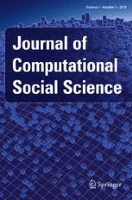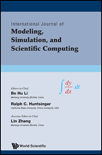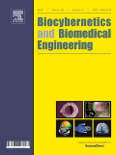
Journal of Computational Social Science
metrics 2024
Innovating Solutions for Complex Social Challenges
Introduction
The Journal of Computational Social Science, published by SpringerNature, is a premier platform for interdisciplinary research at the intersection of social sciences and computational techniques. Since its inception in 2018, this open-access journal has garnered attention for its robust contributions to the fields of Artificial Intelligence and Transportation, holding a distinguished Q2 ranking in both categories as of 2023. Situated in Singapore, the journal embraces a wide scope aimed at exploring innovative applications of computational methods to address complex social phenomena, making it an essential resource for researchers, professionals, and students alike. With a growing impact and recognition—reflected by its Scopus rankings, notably at the 47th percentile in Transportation and 63rd in Artificial Intelligence—the Journal of Computational Social Science is dedicated to facilitating knowledge exchange and fostering collaboration in an era where technology increasingly informs social dynamics. Access to cutting-edge research in this field is vital for enriching scholarly discourse and advancing practical solutions to contemporary challenges.
Metrics 2024
 0.72
0.72 2.00
2.00 2.50
2.50 20
20Metrics History
Rank 2024
Scopus
IF (Web Of Science)
JCI (Web Of Science)
Quartile History
Similar Journals

JMIR Infodemiology
Advancing knowledge at the crossroads of health and information.JMIR Infodemiology is a premier academic journal focused on the critical intersection of information science and health policy. Published by JMIR PUBLICATIONS, INC in Canada, it has established itself as a significant platform for disseminating research on how information dissemination affects public health, particularly in the context of crises such as pandemics. Since its transition to an Open Access model in 2021, the journal has aimed to make cutting-edge research accessible to a global audience. With an impressive impact factor and ranking in the Q2 categories across Computer Science Applications, Health Informatics, and Health Information Management, as well as a Q1 ranking in Health Policy in 2023, JMIR Infodemiology is recognized for its rigorous peer-review process and high-quality publications. The journal encourages interdisciplinary collaborations that advance knowledge and practices essential to harnessing digital information for health initiatives. With a strong emphasis on practical implications, JMIR Infodemiology engages researchers, professionals, and students in vital discussions to foster innovations in health information management.

Journal of Computational Methods in Sciences and Engineering
Bridging Disciplines Through Computational ExcellenceWelcome to the Journal of Computational Methods in Sciences and Engineering, published by IOS PRESS in the vibrant academic landscape of the Netherlands. With a dedicated focus on advancing the application of computational techniques across various domains, this journal serves as a vital platform for researchers, professionals, and students alike. Although it resides in the Q4 category across key disciplines such as Computational Mathematics, Computer Science Applications, and Engineering, the journal aims to foster innovation and disseminate emerging trends in computational methodologies. Despite its current ranking, the journal’s mission is to facilitate a dialogue on pioneering approaches and their practical implications, supporting the growth and evolution of computational sciences. With a publication history that spans from 2001 to 2024, we invite contributions that reflect scientific rigor and creative solutions to complex engineering challenges, reinforcing our commitment to bridging theory and practice in this dynamic field.

International Journal of Modeling Simulation and Scientific Computing
Connecting Theory and Practice in Modeling and SimulationThe International Journal of Modeling Simulation and Scientific Computing, published by WORLD SCIENTIFIC PUBL CO PTE LTD, is a pivotal resource in the realms of Computer Science Applications and Modeling and Simulation. With an ISSN of 1793-9623 and an E-ISSN of 1793-9615, this journal serves as a platform for innovative and high-quality research from 2010 to 2024, contributing to the advancement of methodologies and applications in various scientific fields. Although currently categorized in the Q4 quartile for both recognized domains and positioned in the 42nd and 36th percentiles in the Scopus rankings for Mathematics and Computer Science respectively, the journal encourages scholarly exchange and fosters the integration of modeling and computational analysis in scientific research. Researchers, professionals, and students alike will find this journal an essential tool to stay updated with trends, methodologies, and cutting-edge findings in simulation and computational techniques that drive scientific inquiry today.

EPJ Data Science
Unlocking Insights Through Open Access ResearchEPJ Data Science is a prominent open-access journal affiliated with SPRINGER, dedicated to disseminating high-quality research in the fields of Computational Mathematics, Computer Science Applications, and Modeling and Simulation. Established in 2012, this journal provides a scholarly platform for innovative ideas and methodologies aimed at advancing data science, bridging gaps between theoretical foundations and practical applications. With impressive rankings, including Q1 in Modeling and Simulation and Q2 in both Computational Mathematics and Computer Science Applications as of 2023, EPJ Data Science is recognized for its significant contributions to academia, evidenced by its strong performance in Scopus rankings. The journal is committed to open access, ensuring that research is accessible to a global audience, thereby enhancing collaboration and interdisciplinary communication. Located at One New York Plaza, Suite 4600, New York, NY 10004, United States, it serves as a hub for researchers, professionals, and students eager to share and explore pioneering developments in data science.

NEW GENERATION COMPUTING
Empowering Innovation in Computer ScienceNEW GENERATION COMPUTING is a prominent academic journal published by SPRINGER, specializing in the dynamic fields of Computer Networks, Hardware and Architecture, Software Engineering, and Theoretical Computer Science. With a commitment to disseminating high-quality research since its inception in 1983 and extending its coverage to 2024, this journal occupies a vital role in advancing knowledge and innovation within these critical domains. Holding prestigious Q2 rankings in Computer Networks and Communications, Hardware and Architecture, and Software, as well as a Q3 ranking in Theoretical Computer Science for 2023, NEW GENERATION COMPUTING attracts significant contributions from scholars and professionals around the globe. Researchers will find its rigorous peer-review process ensures the publication of impactful studies, while students gain access to cutting-edge research that shapes contemporary computing practices. Though it does not offer open access, the journal remains an invaluable resource in the academic community, fostering collaboration and dialogue among experts aiming to push the boundaries of technology.

Computation
Transforming challenges into solutions through computation.Computation, published by MDPI, is an esteemed open-access journal that has been contributing to the fields of applied mathematics and computer science since its inception in 2013. With an E-ISSN of 2079-3197, this Swiss-based journal operates under a philosophy of free knowledge dissemination, allowing researchers, professionals, and students globally to access high-quality content without financial barriers. Recognized for its rigorous peer-review process, Computation is currently categorized in the Q2 and Q3 quartiles across significant domains, including Applied Mathematics (#181/635), Theoretical Computer Science (#52/130), and Modeling and Simulation (#138/324). As it converges towards 2024, the journal continues to attract innovative and impactful research aimed at advancing theoretical frameworks and practical applications within these disciplines. Joining the Computation community not only enriches individual research portfolios but also contributes to the broader conversation on computational methodologies and their applications in solving real-world problems.

Computational and Mathematical Organization Theory
Unlocking the potential of organizations with computational and mathematical insights.Computational and Mathematical Organization Theory, published by SPRINGER, is a prominent journal specializing in the intersection of mathematical and computational methodologies within organizational theory. With its ISSN 1381-298X and E-ISSN 1572-9346, this journal has established itself as a critical source of cutting-edge research since its inception in 1995 and continues to thrive with contributions spanning from 2005 to 2024. Noteworthy is its recognition in the 2023 quartile rankings, where it holds a Q2 status across multiple categories, such as Applied Mathematics, Computational Mathematics, and Decision Sciences, reflecting its broad analytical scope and the relevance of its findings to diverse fields. Furthermore, its Scopus rankings position it favorably within the academic community, underscoring its significant impact in Applied Mathematics (Rank #156/635), Computational Mathematics (Rank #59/189), and Modeling and Simulation (Rank #122/324). Although the journal is not open access, it provides crucial insights and methodologies that aid researchers and practitioners in enhancing organizational processes through mathematical and computational lenses. For scholars seeking to advance their understanding and application of these interdisciplinary approaches, Computational and Mathematical Organization Theory serves as an invaluable resource in the ever-evolving landscape of academic inquiry.

JOURNAL OF INFORMATION SCIENCE AND ENGINEERING
Bridging Disciplines in Information Science and Engineering.JOURNAL OF INFORMATION SCIENCE AND ENGINEERING, published by the Institute of Information Science in Taiwan, is a pivotal platform for the dissemination of innovative research in the multidisciplinary fields of information science and engineering. Established in 1993, the journal primarily focuses on areas such as library and information sciences, human-computer interaction, hardware and architecture, as well as computational theory and software development. Despite holding a current Q4 ranking in several categories, the journal demonstrates significant potential for growth, particularly in computation and software systems, as evidenced by its Scopus rankings and percentiles. Researchers, professionals, and students will find this journal to be an invaluable resource to stay abreast of evolving theories and technologies in information science. The journal is accessible through traditional subscription models, fostering a broad academic outreach. It serves to enhance knowledge-sharing and collaboration within this dynamic and ever-evolving field.

Frontiers in Computational Neuroscience
Unlocking the Mysteries of the Brain through Computational Insight.Frontiers in Computational Neuroscience, published by FRONTIERS MEDIA SA, is a leading journal within the fields of neuroscience and computational biology, dedicated to advancing the understanding of the brain's complex functions through innovative computational methodologies. Since its establishment in 2007, this Open Access journal has provided a platform for researchers around the globe to share their groundbreaking findings, as evidenced by its continual presence in the academic conversation and a strong ranking within Scopus metrics (Rank #12/49 in Neuroscience - Neuroscience (miscellaneous) and Rank #63/97 in Cellular and Molecular Neuroscience). With an esteemed impact factor reflective of its quality and influence, and a commitment to providing freely accessible research, this journal plays a crucial role in fostering collaboration and knowledge dissemination among professionals, researchers, and students alike. Located in the scientific hub of Switzerland, it invites submissions from diverse perspectives, aiming to bridge the gap between computational models and biological insights through rigorous peer-reviewed publications.

Biocybernetics and Biomedical Engineering
Unleashing the Potential of AI in HealthcareBiocybernetics and Biomedical Engineering, published by ELSEVIER in the Netherlands, is a prestigious journal that stands at the forefront of the intersecting fields of biomedical engineering and artificial intelligence. With an impressive Impact Factor that places it in the Q1 category for Biomedical Engineering, this journal not only ranks 17th out of 303 in Scopus but also boasts a remarkable percentile ranking of 94th, highlighting its influence and relevance within the scientific community. Since its inception in 2008, Biocybernetics and Biomedical Engineering has aimed to publish cutting-edge research that integrates principles of cybernetics with technological advancements in health care, thereby fostering innovations that improve patient outcomes. Dedicated to advancing knowledge in biomedical technology, the journal serves as a vital resource for researchers, professionals, and students seeking to explore the latest developments and methodologies in the field.